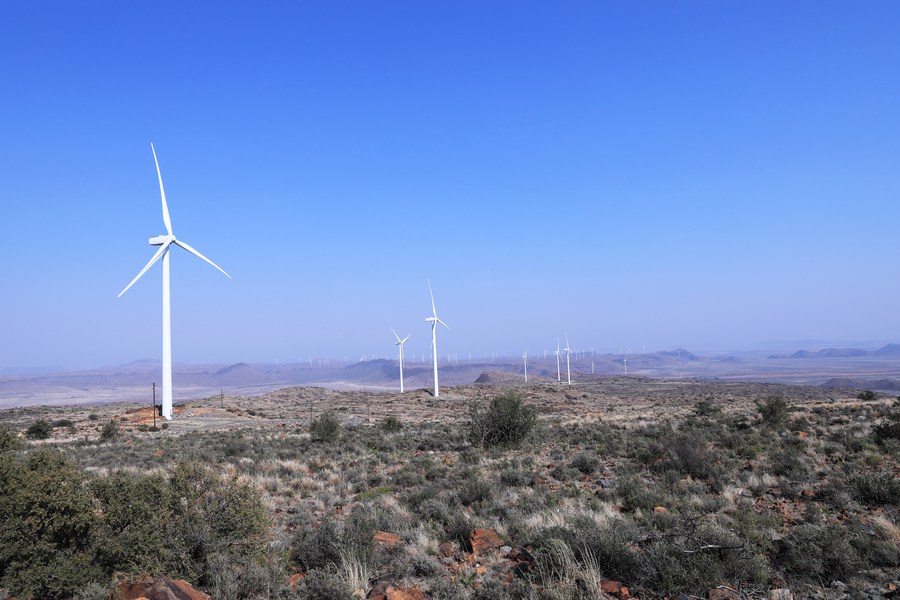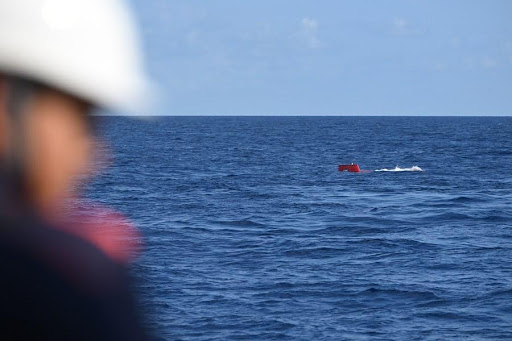As a leading practitioner of ecological civilization, China has in recent years stepped up efforts toward green transition and made sustainable development achievements.
DUBAI, Dec. 1 (Xinhua) — In an unprecedented crisis of climate change, China, a responsible member of the global family, stands out as a doer in advancing global climate governance, and has been actively boosting international cooperation to address the crisis.
COP28, namely the 28th session of the Conference of the Parties to the United Nations Framework Convention on Climate Change, is going on in Dubai, the United Arab Emirates, from Nov. 30 to Dec. 12.
The UN climate conference has garnered increasing global attention as climate change is threatening human survival more than ever.
This year’s conference is notably significant as it will respond to the first-ever Global Stocktake of the Paris Agreement, a two-year assessment of the world’s collective progress toward achieving the goals of the agreement.
As a leading practitioner of ecological civilization, China has in recent years stepped up efforts toward green transition and made sustainable development achievements.
It has set a bold “dual carbon” goal of peaking carbon emissions by 2030 and achieving carbon neutrality by 2060, and formulated a “1+N” policy framework for its realization.
For a net-zero future, China has built the world’s largest clean power generation system, with its total installed capacity of hydropower, wind power, and solar power generation ranking first in the world.
In addition, during the past decade, its annual energy consumption has grown at a rate of 3 percent, supporting an average economic growth of 6.6 percent, making China one of the countries that have seen the fastest reduction in energy intensity.
Upholding the vision of a community with a shared future for mankind, China has also been actively promoting international climate cooperation and getting increasingly involved in global environmental governance.
It has signed 43 South-South cooperation documents on climate response with 38 developing countries, trained about 2,000 officials and professional personnel specializing in climate response for more than 120 countries, and made notable contributions to building a fair and rational global climate governance system for win-win results.
Earlier this month, China and the United States jointly issued “The Sunnylands Statement on Enhancing Cooperation to Address the Climate Crisis.” COP28 President Sultan Ahmed Al Jaber welcomed the statement as an important achievement ahead of COP28. He said it echoes the continued international calls for climate actions and raises the threshold for responses to the stocktaking of the Paris Agreement at COP28.
China holds a consistent position on climate issues: to tackle climate change, a pressing global challenge, it is crucial to come up with a worldwide solution, and it is essential to effectively implement the UN Framework Convention on Climate Change and the Paris Agreement in a comprehensive and balanced manner; All parties should promote unity and cooperation, and reject protectionism and unilateralism in any form.
 These staunch calls came as many Western developed countries, which are duty-bound in global climate governance and have actual capabilities to do more in global cooperation, failed to deliver on their promises.
These staunch calls came as many Western developed countries, which are duty-bound in global climate governance and have actual capabilities to do more in global cooperation, failed to deliver on their promises.
Neither a 25-42 percent emission reduction from the 1990 level nor a 100-billion-U.S. dollar financing every year for developing countries’ climate action, has been implemented.
In recent years, extreme weather events have become more frequent, and the adverse effects of climate change have become prominent, said Wang Wenbin, a spokesman for the Chinese foreign ministry, noting that the latest report released by the United Nations Environment Program (UNEP) once again reminds the world that the efforts to tackle climate change are far from enough.
Ahead of COP28, China reaffirmed its resolve and commitments, and urged developed countries to walk the talk.
“China will work with all parties to support the UAE’s presidency, and use the global stocktake as an opportunity to step up implementation, strengthen supporting measures and jointly build a fair, reasonable and win-win global climate governance system,” said the spokesperson.
To achieve climate control goals, the Convention and its Paris Agreement require developed countries to take the lead in making significant emissions cuts and provide financial, technological and capacity-building support for climate actions in developing countries. At the same time, developing countries should also contribute to the fight against climate change, Wang said.












